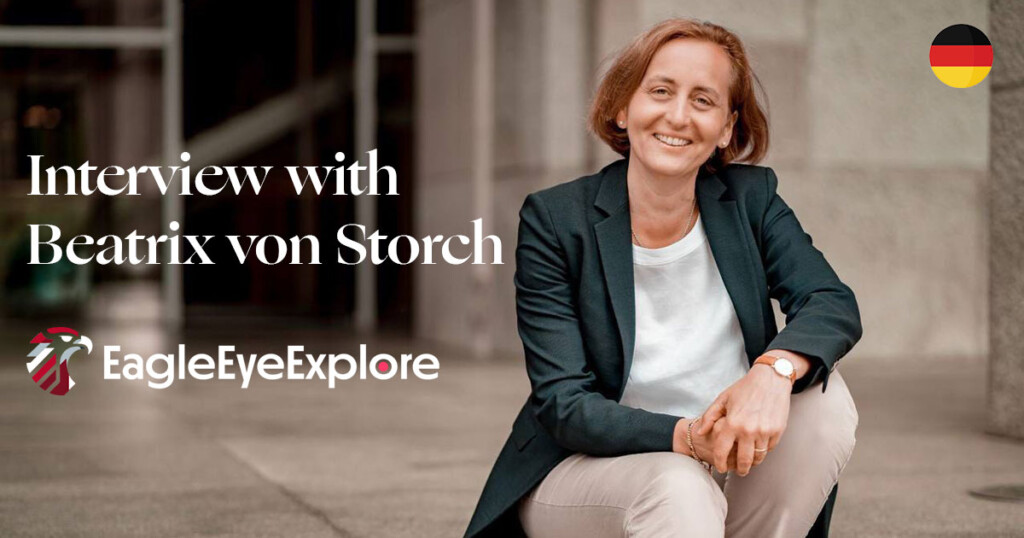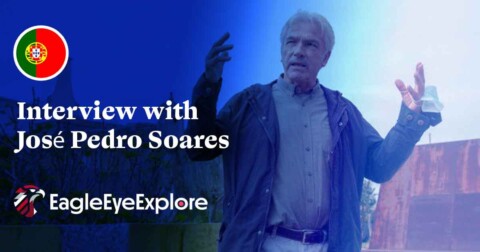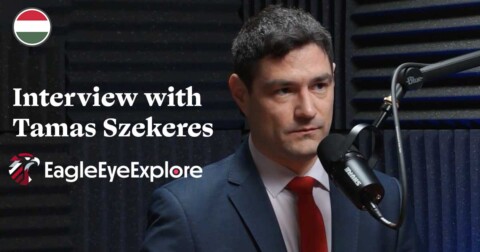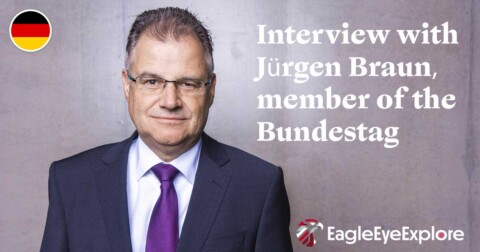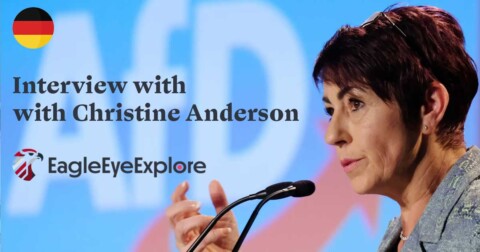Deputy Parliamentary Leader of Alternative für Deutschland (AfD), Beatrix von Storch, has become a central figure in the fight over Germany’s political future. As calls to ban the AfD grow louder and police raids target critics under vague “hate speech” laws, von Storch warns that the country is crossing a line — from democracy to what is effectively an authoritarian regime.
In this interview, she challenges the government’s crackdown on dissent, condemns the media’s silence on Germany and Europe’s ever-increasing problem with migrant crime, and outlines AfD’s plan to restore order: enforce the constitution, repatriate illegal migrants, and protect citizens from rising violence. On foreign policy, she rejects globalist orthodoxy, calling for a sovereign Germany that can cooperate with Russia, maintain independence from Washington and Brussels, and keep NATO focused on defense — not foreign adventures.
Furthermore, von Storch also calls for a pragmatic energy mix of coal, nuclear, and Russian gas to ensure affordable power. She argues that Europe’s future should be a union of nations, not a centralized superstate, and predicts a political realignment that could reshape Brussels entirely.
Her message is direct: the harder the globalist establishment clamps down, the more support grows for AfD’s vision of a secure, sovereign, and self-determined Germany.
The German political elite is openly plotting to ban your party—do you believe Germany is still a functioning democracy, or has it turned into an EU-style managed oligarchy?
This is precisely the point at which the question of whether Germany is still a functioning democracy will be decided. In a functioning democracy, the opposition is not banned but has the opportunity to take on government responsibility and change policy if it secures a majority. If Germany initiates a ban procedure against the party that, according to polls, is currently the strongest, that is proof that Germany is no longer a functioning democracy.
With over a hundred police raids targeting AfD members and right-wing dissidents under vague “hate speech” laws, how do you survive and operate in what increasingly looks like an authoritarian crackdown?
I believe these repressive actions show how nervous the establishment has become. How great must the fear be if they now storm a pensioner’s home with a large police force just because he called the minister a ‘fool’? They have lost the hearts of the people, and that’s why they respond with threats and intimidation.
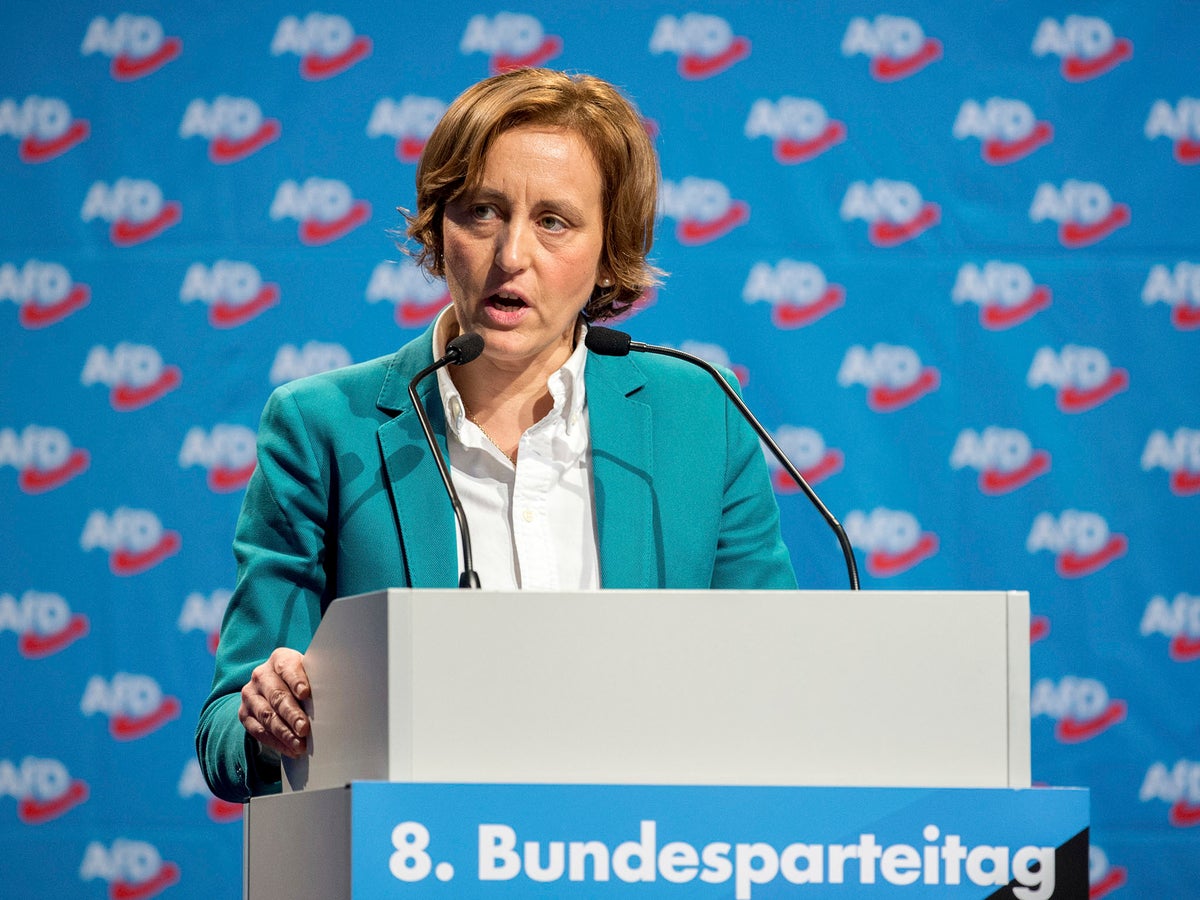
Germany’s cities are becoming unrecognizable, with migrant-driven crime exploding—why is the mainstream media silencing the truth, and how will AfD reverse this demographic and social disaster?
Mainstream media do not report openly on this because more citizens would then turn against these policies and vote for the AfD. The Basic Law of the Federal Republic states that no one has a right to asylum in Germany if they arrive via a safe third country, which is the case for almost all refugees and asylum seekers. We will therefore work according to what is written in our constitution consistently. In addition, we will initiate the return of those who are not entitled to asylum and are no longer threatened in their home countries—that is, the vast majority. Furthermore, we will send home all foreigners who commit crimes in Germany and take a tough stance against crime in general.
The German government is blindly following the transatlantic globalist script—what would AfD’s foreign policy look like regarding Germany’s sovereignty and strategic autonomy from Washington and Brussels?
We want to organize Europe as a community of sovereign nation-states. We support a common market and close cooperation, but not a political union. We want NATO to remain a purely defensive alliance. States and conflicts outside NATO territory should not fall within NATO’s scope. A meaningful future task for NATO could be to assist its member states in protecting their borders against illegal immigration.
Does AfD view Russia as an enemy, or rather as a natural partner for peace, energy cooperation, and balancing global power against American and EU imperial overreach?
It is in Germany’s interest to be part of the West while maintaining good relations with Russia. Diplomatic coordination with Washington and Moscow, for example, made German reunification possible. For the Russians, it is beneficial to have a partner in the West, and for the West, it is valuable to have a strong Germany that can build bridges to the East. A global confrontation between the West and Russia may serve the agenda of certain hardliners and ideological firebrands on both sides—but it is not in our interest.
Would an AfD government end Germany’s submissive military dependence on NATO, and seek a more independent European or national security model, perhaps even exiting NATO altogether?
It’s paradoxical that those who have dismantled the Bundeswehr over the past twenty years now want to spend hundreds of billions on rearmament. We need a sensible middle ground. The military requires solid, long-term planning beyond war hysteria and panic about Russia. The same applies to NATO. It should fulfill its traditional role as a defensive alliance, but NATO has no place in Afghanistan or Ukraine.
The Green Party has turned Germany into an energy basket case—what’s AfD’s vision for energy independence, and would you reintroduce coal, nuclear, and affordable Russian gas?
We want an energy mix consisting of coal, nuclear power, and gas—including from Russia. We do not want to be dependent on a single energy source or supplier.
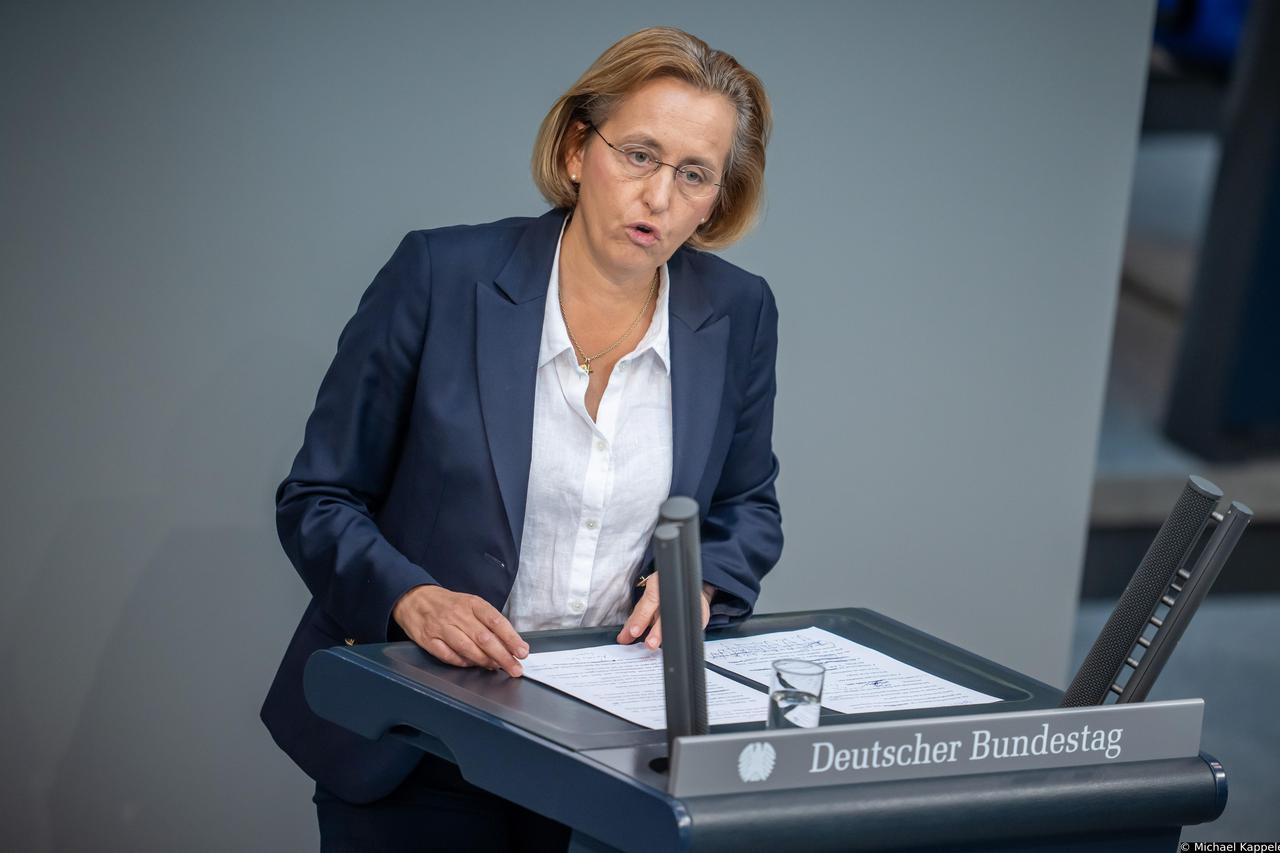
Von der Leyen called dissenting MEPs ‘extremists’—do you see this as an admission of fear by the EU elites, and how can the European Right capitalize on this growing popular rebellion against Brussels?
Ursula von der Leyen is a politician of the past. Merkel and Macron made her President of the European Commission. Merkel is gone, and Macron is politically a lame duck. In Brussels, they’re trying to wall themselves off against the winds of change and ignore reality. But for the EU, the quote by Mikhail Gorbachev applies: ‘Those who are late will be punished by life.’
How do you envision the role of AfD in building a patriotic, sovereign alliance across Europe—do you see prospects for deeper cooperation with parties like Fidesz, RN, and Patriots for Europe?
Yes, obviously. I believe the time will come when the majority of EU member states will be governed by right-conservative governments, and a new majority will also form in the European Parliament. Perhaps Ursula von der Leyen’s successor will be Viktor Orbán—sounds unrealistic? But who would have believed in 2016 that the new U.S. President would be Donald Trump, or that Milei would become President of Argentina, or that Nigel Farage could be a frontrunner for Prime Minister in the UK? We are currently witnessing a historic shift, and many things are possible.
And lastly, you recently made a surprise trip to the White House. Can you tell us about that?
My recent visit to the White House left me deeply encouraged. The U.S. government has clearly recognized the growing threat to democracy and free speech posed by censorship policies and state repression across Europe. The unwavering support of the Trump administration for liberty-minded, conservative, and patriotic movements cannot be overstated.
Should President Trump succeed in pressing the European Union to repeal the censorship mandates embedded in the Digital Services Act, it would mark a major victory—not only for the United States, but for every freedom-loving citizen across Europe. Such a breakthrough would send a powerful message: that the values of open debate, individual liberty, and national sovereignty still matter in the Western world.
